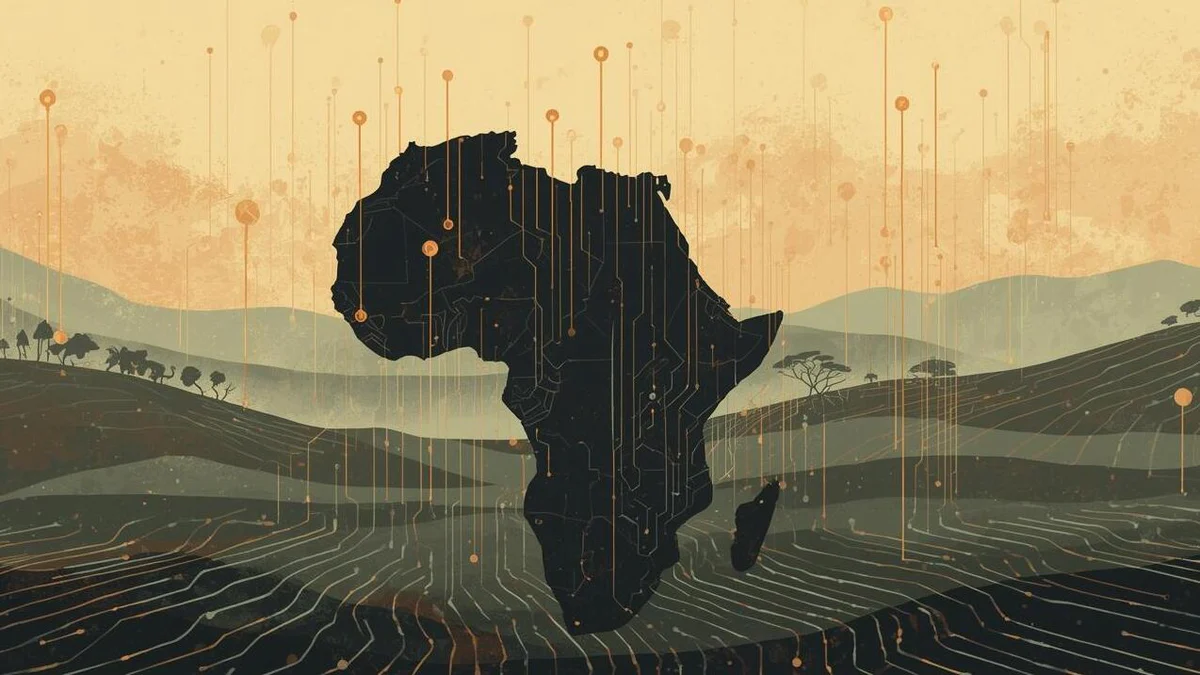Africa's AI Language Battle: Local Languages Fight Global Tech Gap
As artificial intelligence reshapes the global technological landscape, Africa faces a critical challenge: preserving and integrating its local languages into the digital future. While the continent lags in AI development, this linguistic diversity could become its strategic advantage.

African tech developers working on local language AI solutions
As artificial intelligence (AI) rapidly evolves worldwide, a crucial question emerges: How can African local languages secure their place in a tech ecosystem dominated by English, Mandarin, and Spanish? While the continent lags in industrial and scientific AI deployment, it simultaneously faces a strategic challenge: ensuring the survival, promotion, and integration of its languages in tomorrow's digital universe.
Global Context and Technological Asymmetry
The United States, China, and to a lesser extent, Europe, currently control most AI-related infrastructure, funding, and patents. This technological concentration creates a significant imbalance in global AI development.
- Research Concentration: 80% of scientific publications come from less than ten countries
- Private Sector Dominance: Tech giants like Google, Microsoft, OpenAI, Baidu, and Tencent largely dictate R&D priorities
- Infrastructure Gap: Access to supercomputers and large language models remains highly uneven
The Critical Role of African Languages
With over 2,000 languages, Africa's linguistic diversity represents both a challenge and an opportunity. The absence of these languages in AI training data threatens their digital existence, but also opens possibilities for innovative solutions.
Several key issues emerge:
- Digital Erasure Risk: Languages like Wolof, Lingala, Swahili, and Hausa face progressive invisibility in digital spaces
- Cultural Sovereignty: Language preservation directly impacts cultural transmission and cognitive independence
- Market Opportunity: Structured corpus development and targeted machine translation could transform this challenge into a competitive advantage
Emerging Local Initiatives
African projects addressing this gap include:
- Masakhane: A pan-African researcher network focused on African language machine translation
- Academic Investment: Universities in Nairobi, Johannesburg, and Accra developing natural language processing labs
- Tech Startups: Local companies specializing in voice solutions for African markets
Economic and Political Implications
The language question in AI development carries significant consequences:
- Economic Impact: Risk of local players being marginalized in the global digital economy
- Political Sovereignty: Reduced state capacity to regulate AI applications
- Social Division: Growing gap between globally connected elites and local language users
Africa's AI gap shouldn't be viewed solely as a disadvantage. The local language battle represents a crucial sovereignty dimension and strategic opportunity. With sustained investment in data corpus development, engineer training, and infrastructure, Africa could emerge as an original player, reinventing AI to reflect its social, economic, and cultural realities.
Adrian Singh
Business reporter focused on economic freedom, foreign investment, and institutional transparency.
